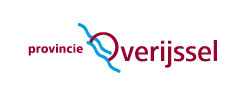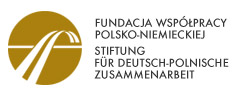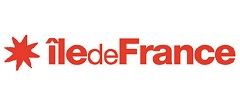Eurovision 2012: A "Wake-Up" Call on Human Rights in Azerbaijan
As the eyes of the world focus on Eurovision in Baku, WECF calls for international attention on poor living conditions and the human rights abuses in Azerbaijan
25.05.2012 | WECF Press Release
WECF, together with local and international partners, has been working in rural areas in Azerbaijan during the past few years where poverty stricken communities lack access to basic services in particular safe drinking water and sanitation.
Margriet Samwel, water programme coordinator at WECF states: “Azerbaijan is a beautiful country with 9,1 million inhabitants and with abundant natural resources like oil and metals. Azerbaijan is in fact a rich country, which is clearly visible in Baku. However the richness of the country does not benefit a big part of its citizens. Azerbaijan has the highest infant mortality in the EECCA region, poor drinking water quality, a lack of hygiene and appropriate sanitation as well as widespread corruption, social inequity and human rights abuses - this is the reality local people face on a daily basis outside the doors of the shimmering glass-and-steel Crystal Hall in Baku where the Eurovision takes place today”.

Is Crystal Hall the real face of Azerbaijan?
WECF is calling for attention of the international community to the poor living conditions in rural areas of the human rights situation in Azerbaijan. According to Margriet Samwel, the “increased media coverage of Azerbaijan is meaningless if it does not contribute to the improvement of the human rights situation in the country” . We should let the media know that the Crystal Hall is not the real face Azerbaijan, and tell the European Broadcaster Union and other companies supporting the Eurovision event, to lift their deathly silence on the human rights situation.
Azeri decision makers are called on to take action for a sustainable development
Unsafe drinking water, poor sanitation, lack of good governance and a high unemployment rate have been identified as the main problems during the needs assessment in WECF project regions. WECF calls on decision makers of Azerbaijan to prioritise poverty eradication in the rural and remote regions in their country and to assure the human right to basic services for all, including safe and affordable water and sanitation systems.
WECF encourages the international political community, international organizations, media and civil society to raise call for assuring human rights and a healthy environment for all Azeri citizens.

# # #
Safe Water and Sustainable Sanitation for All - WECF implements decentralised, safe sustainable and affordable sanitation systems for rural areas and promotes in particular access to safe water and sanitation for schools. WECF raises awareness and mobilises citizens for sustainable water and wastewater management and promotes community based and affordable water supply systems for rural areas without a centralised drinking water supply. WECF and partners represent civil society in the UNECE Protocol on Water and Health process and advocate for an integrated and sustainable approach to water resource and river basin management.
WECF aims to provide safe, affordable and renewable energy for low income households, bringing successful pilot projects to scale via innovative financial instruments. WECF promotes a switch away from fossil fuels and nuclear energy towards sustainable and decentralised alternatives. WECF empowers vulnerable groups to benefit from climate change adaptation and mitigation programmes. WECF promotes gender-positive energy solutions and integrates a gender perspective into global UN climate change negotiations.
For further information:
- WECF projects “Community Approaches to a Better Environment for All and Poverty Reduction in Out of Reach Communities”: http://www.wecf.eu/english/about-wecf/issues-projects/projects/community-azerbaijan.php
- WECF project “Building the capacity of poor local communities in rural areas in Azerbaijan”: http://www.wecf.eu/english/about-wecf/issues-projects/projects/ela/ela-azerbaijan.php
- WECF project “Support of climate protection via sustainable energy by training and capacity building of local partner NGOs in Caucasus and Central Asia and networking between them”: http://www.wecf.eu/english/about-wecf/issues-projects/projects/energy-capacity-BMU-08.php
- Case study "No Safe Drinking Water for the Region Sabirabad, Azerbaijan": http://www.wecf.eu/english/publications/2012/case-study-azerbaijan-water.php
Or contact:
Chantal Van den Bossche, WECF press, at chantal.vandenbossche@wecf.eu, mob: 0031-6.2812 9992


































